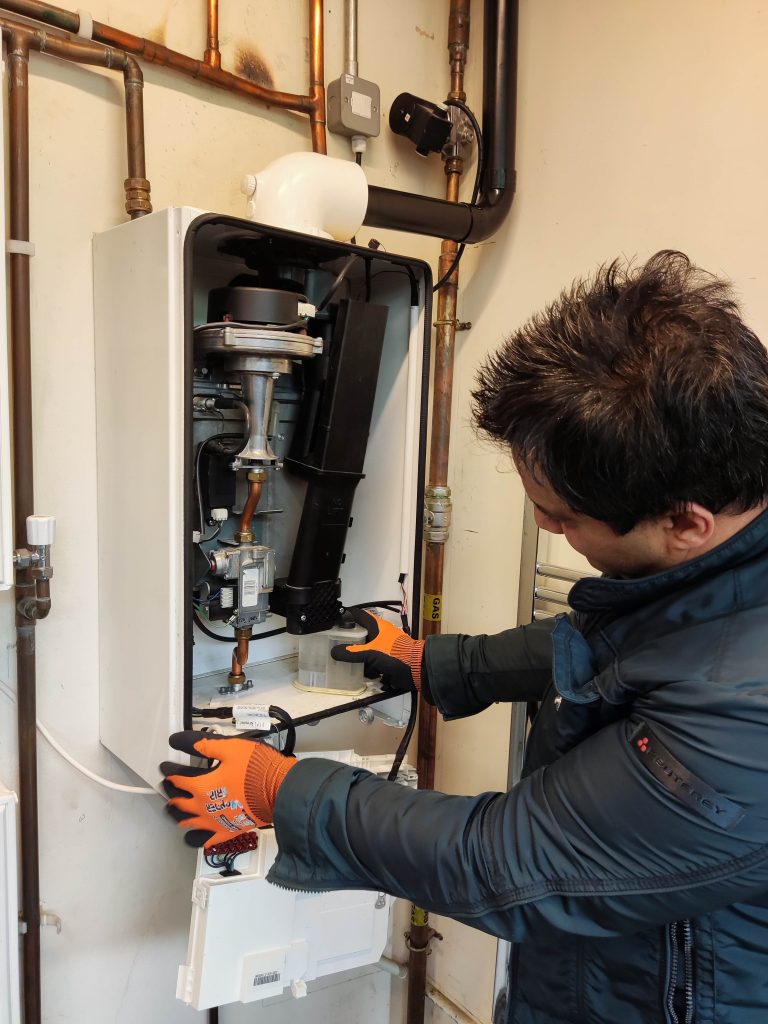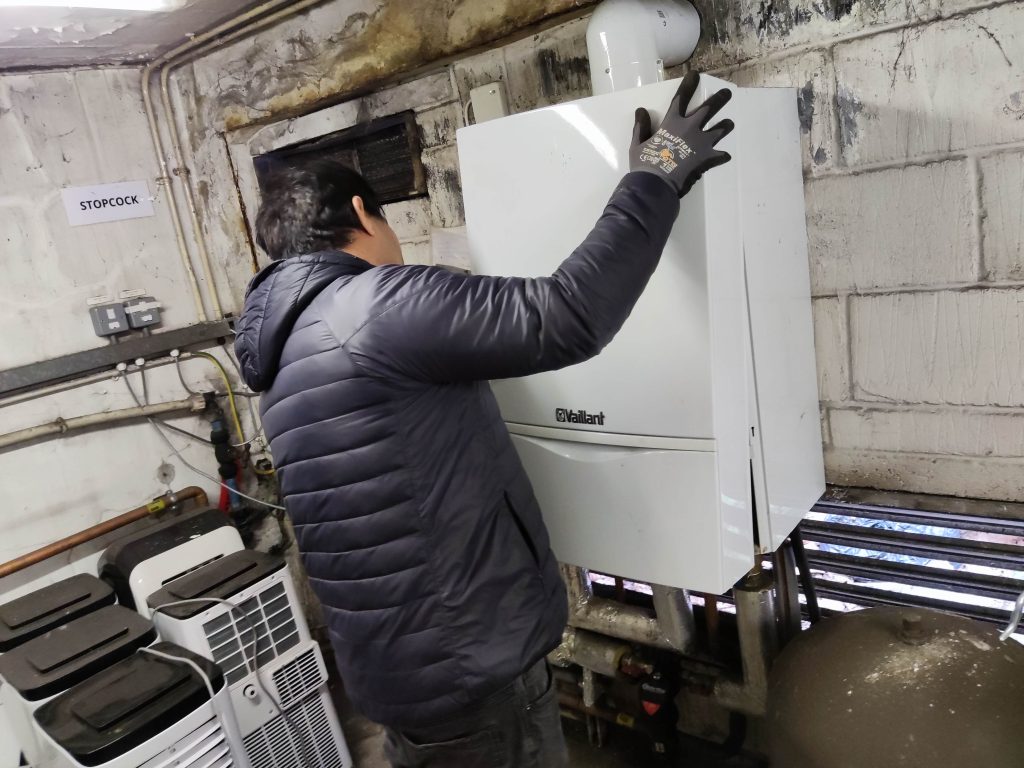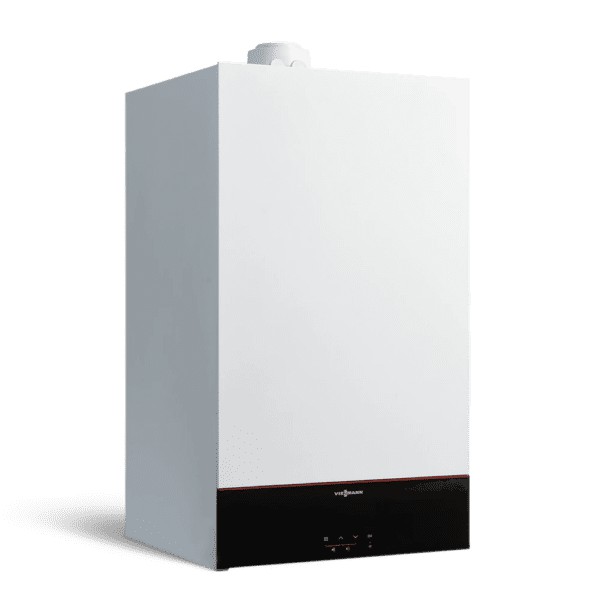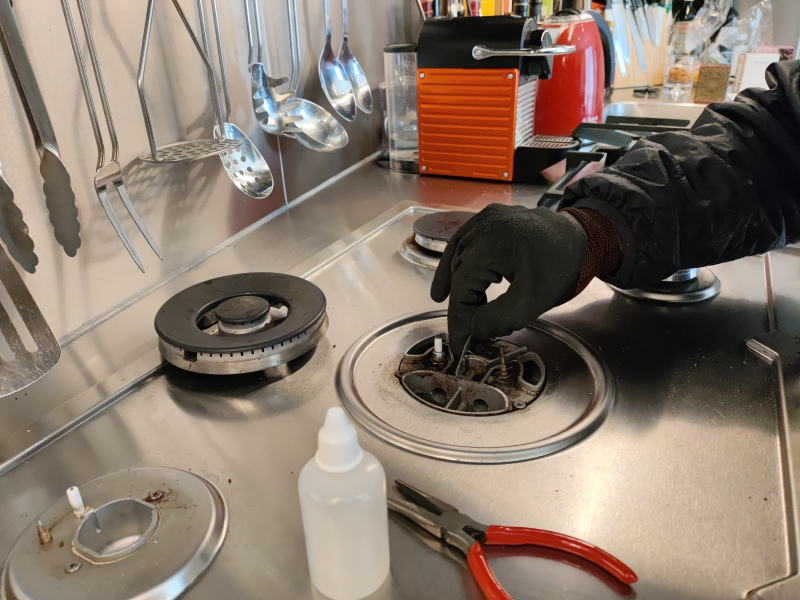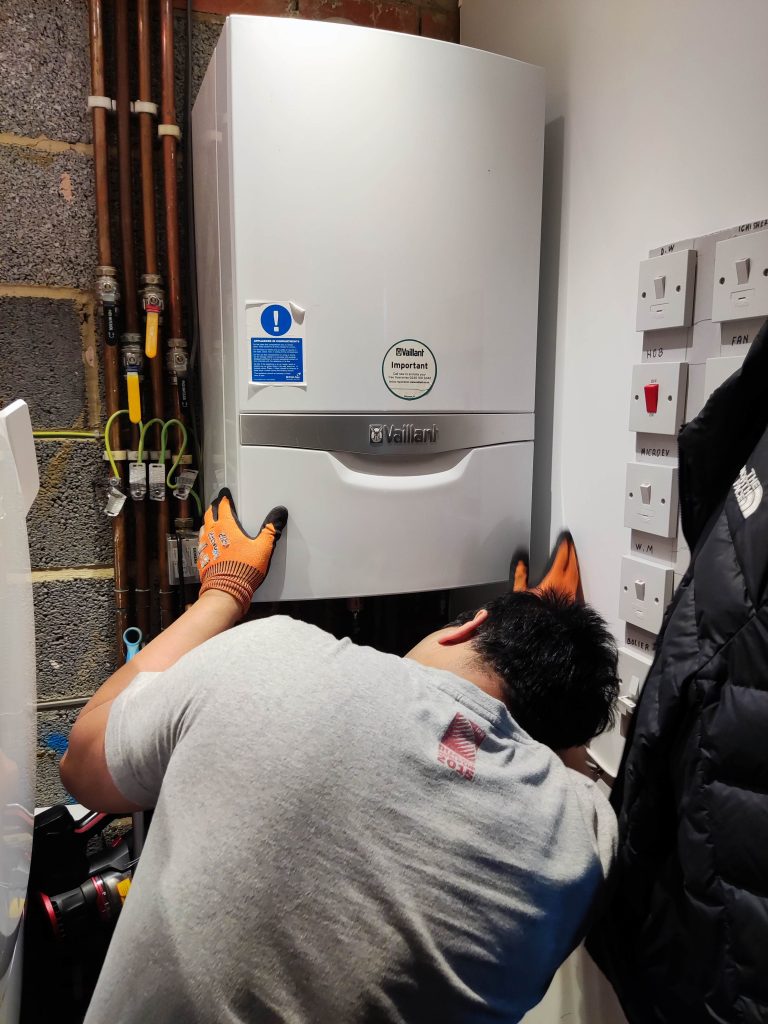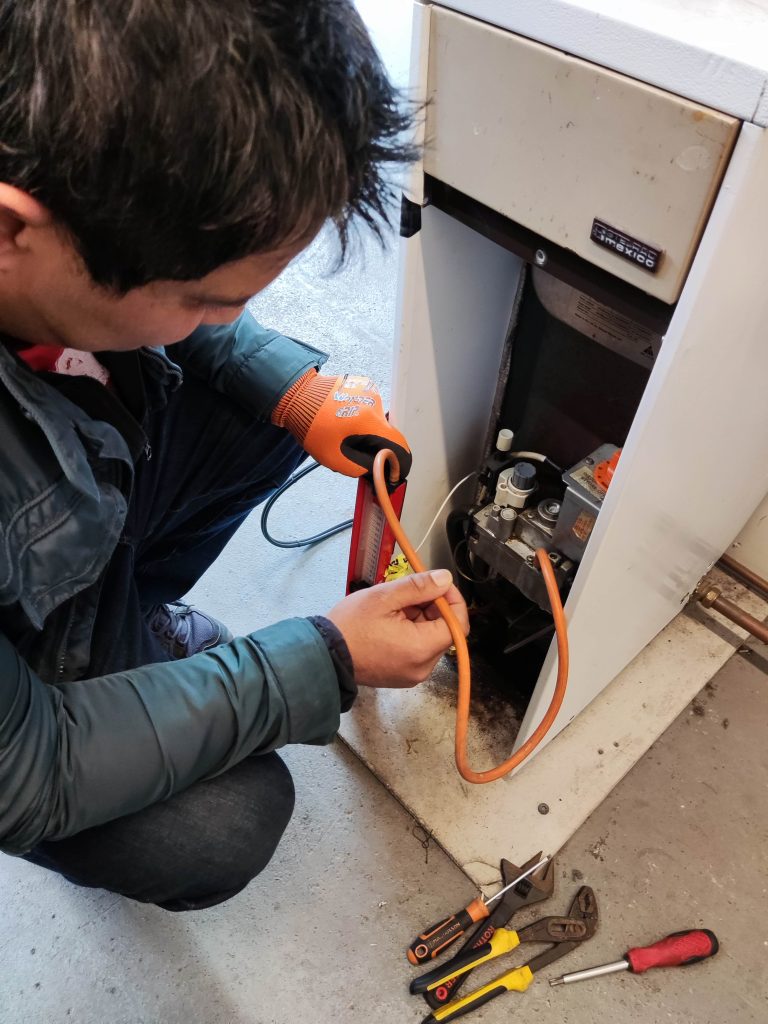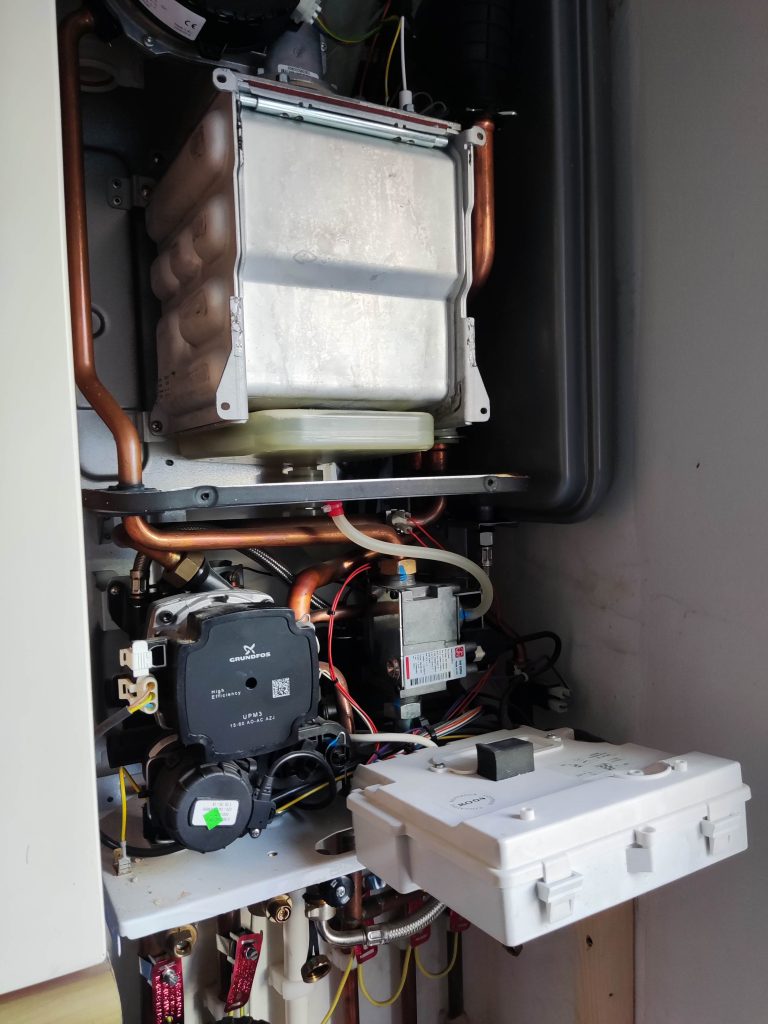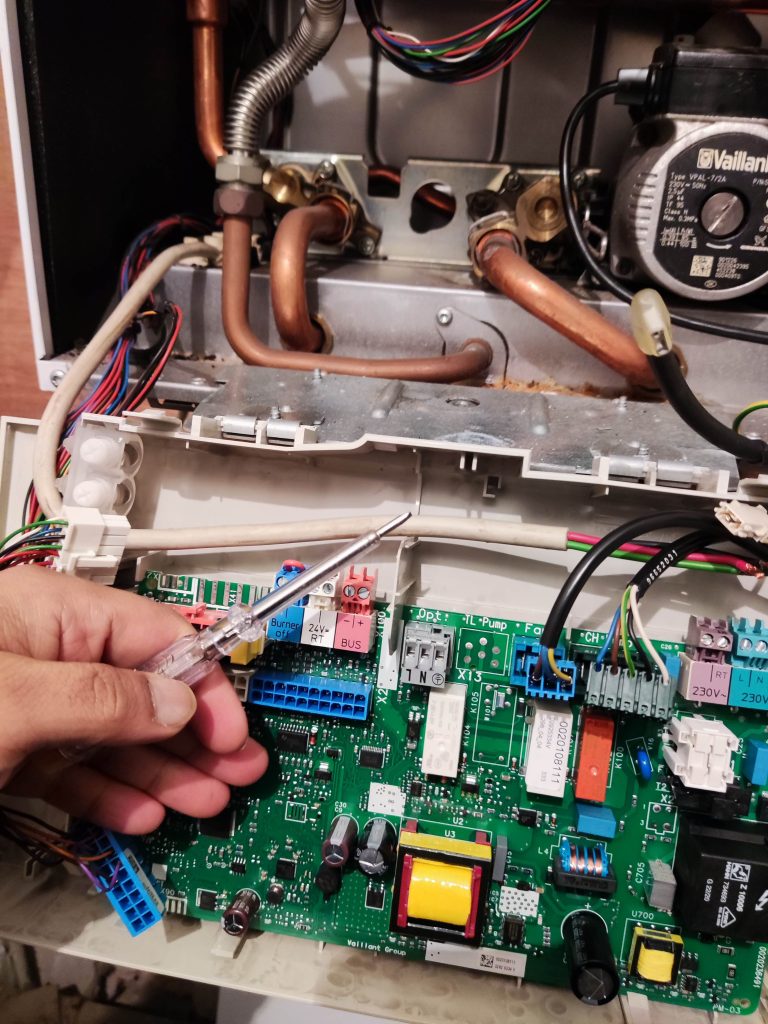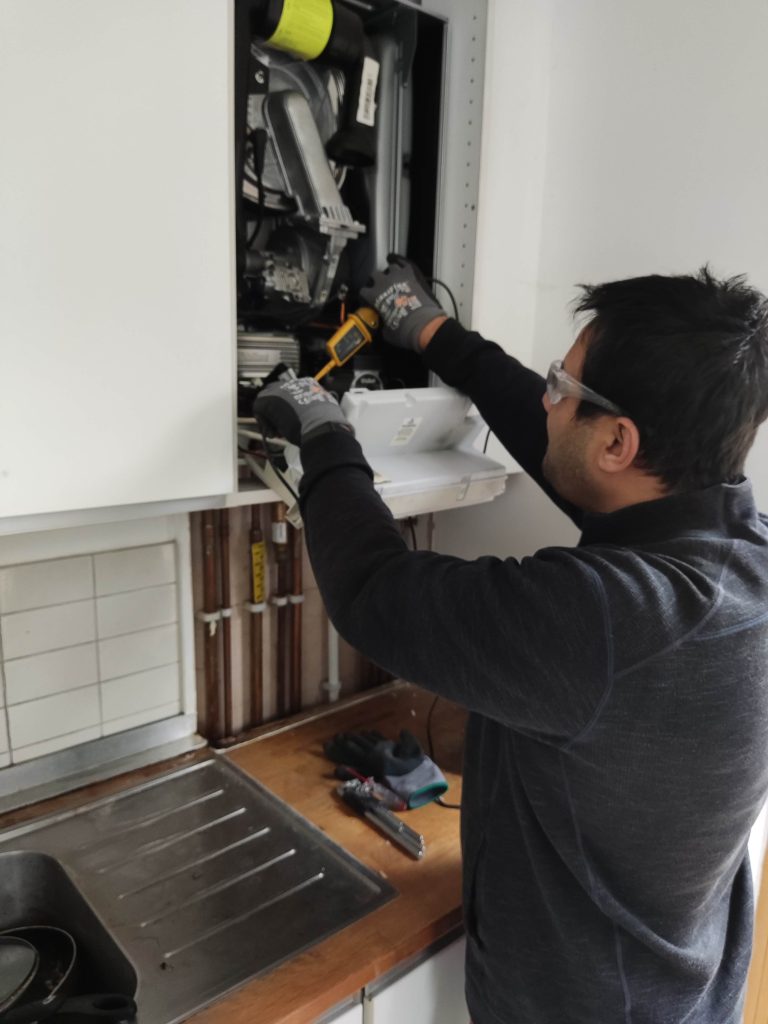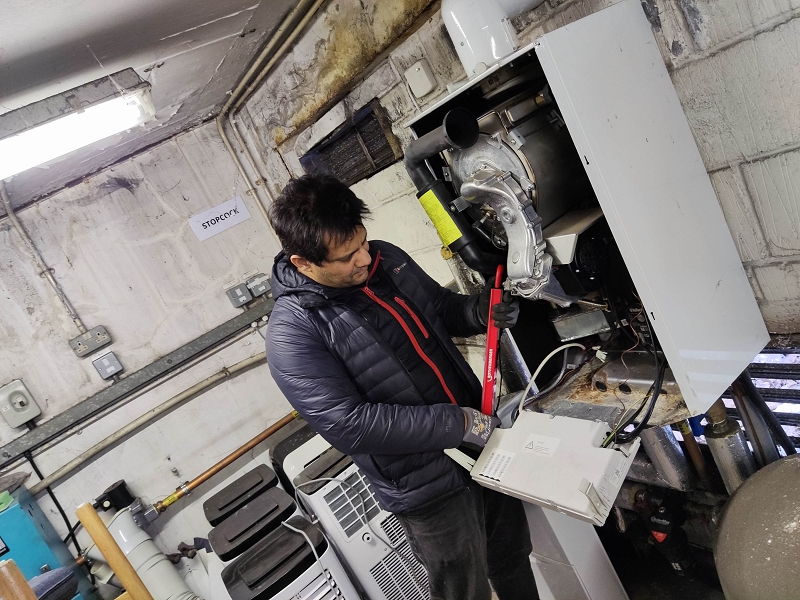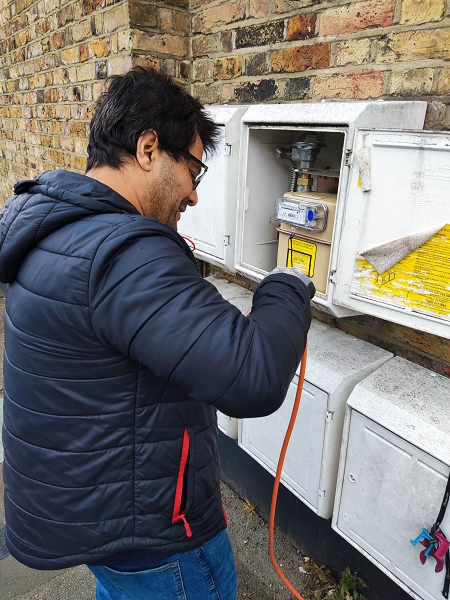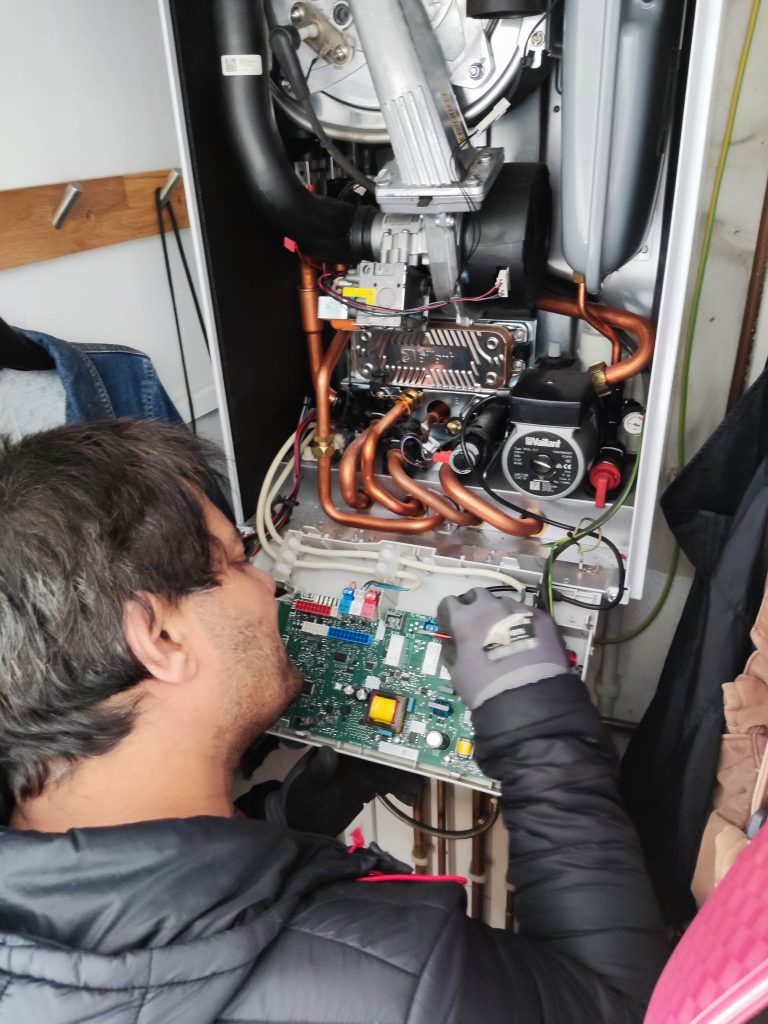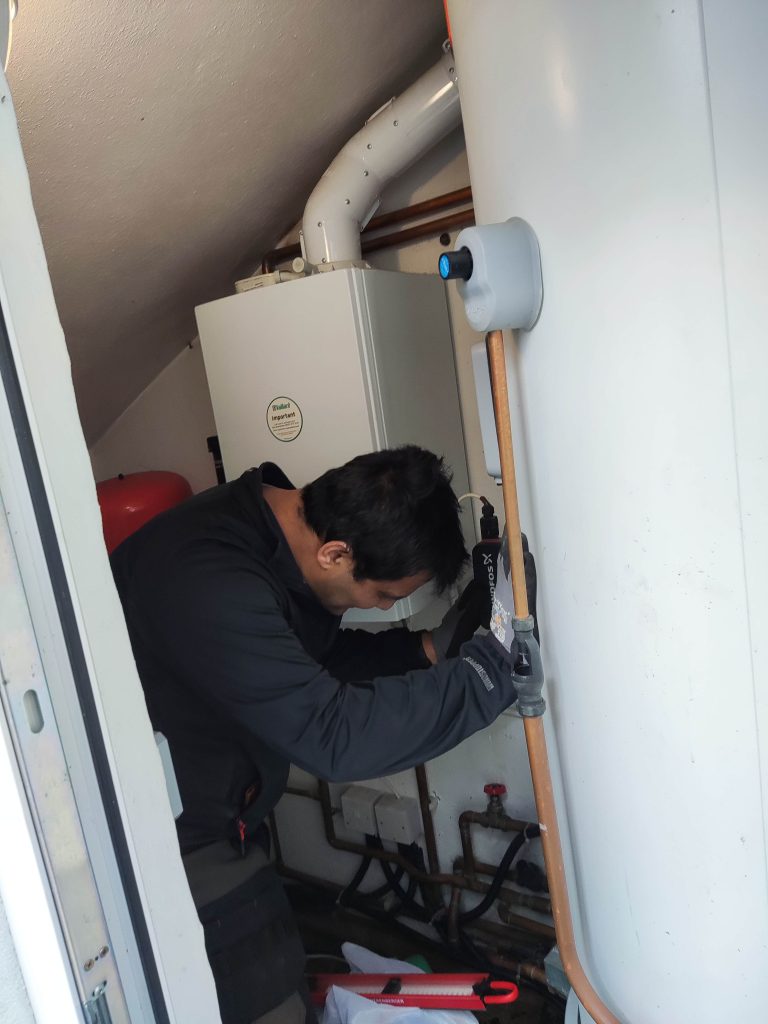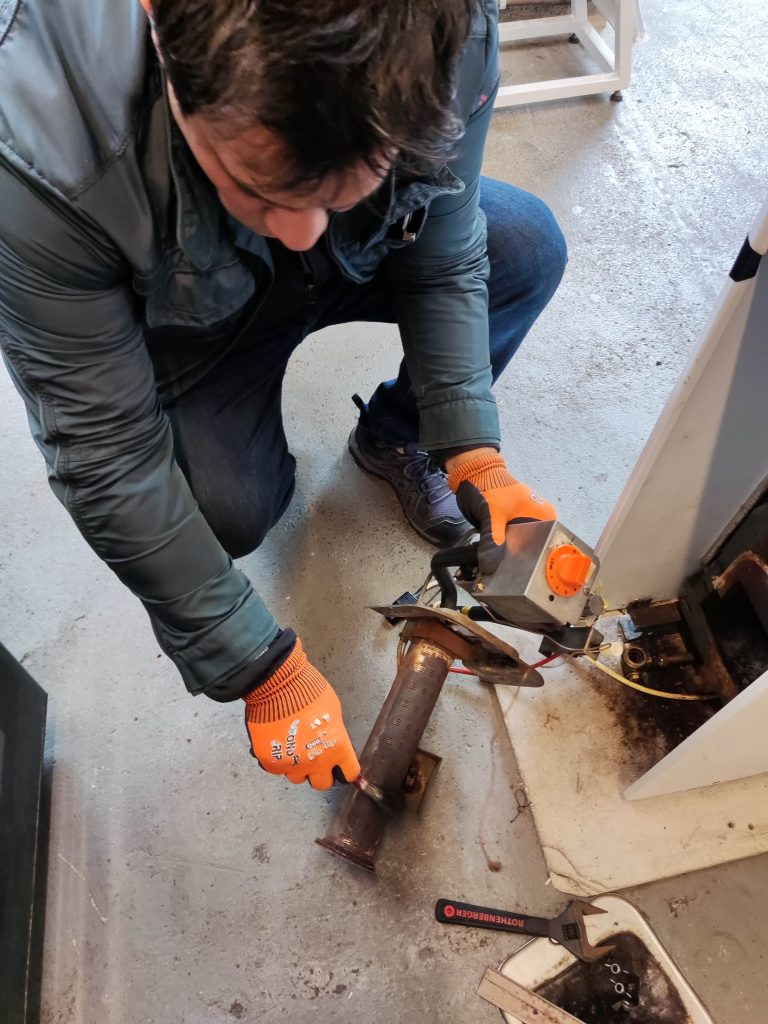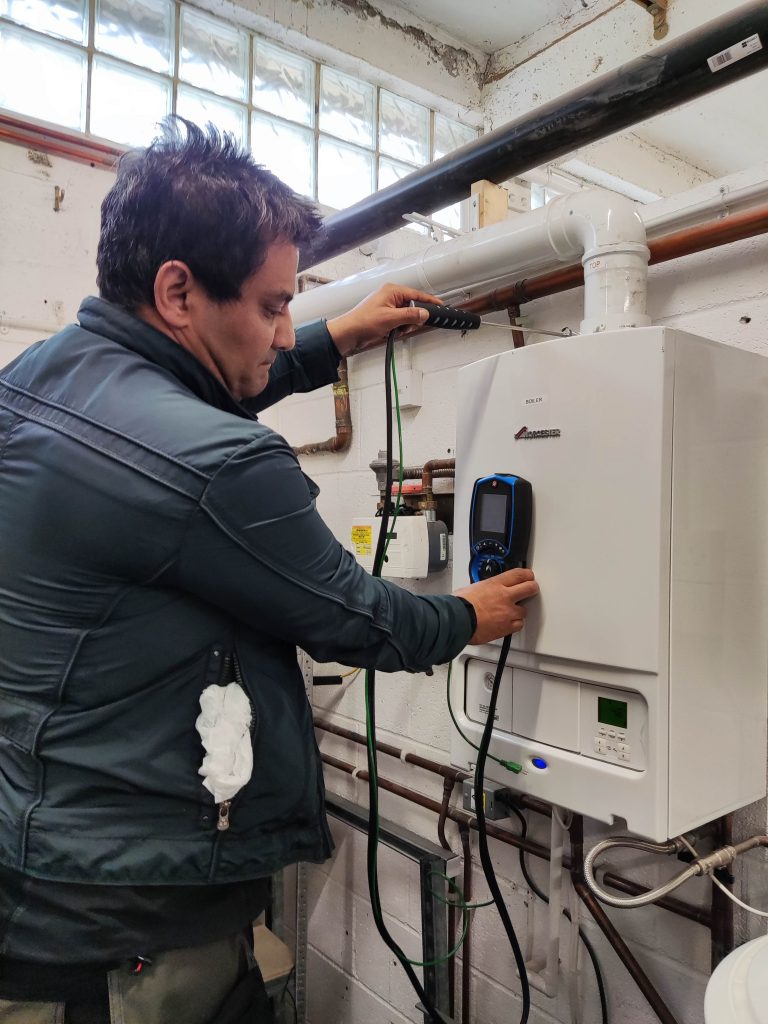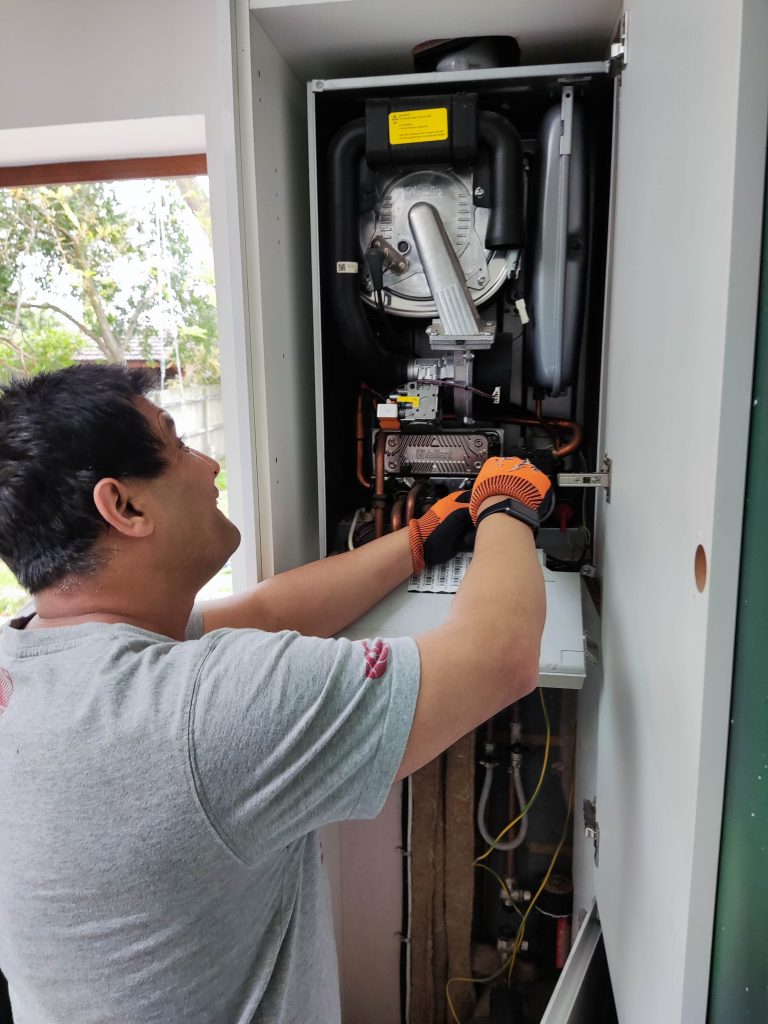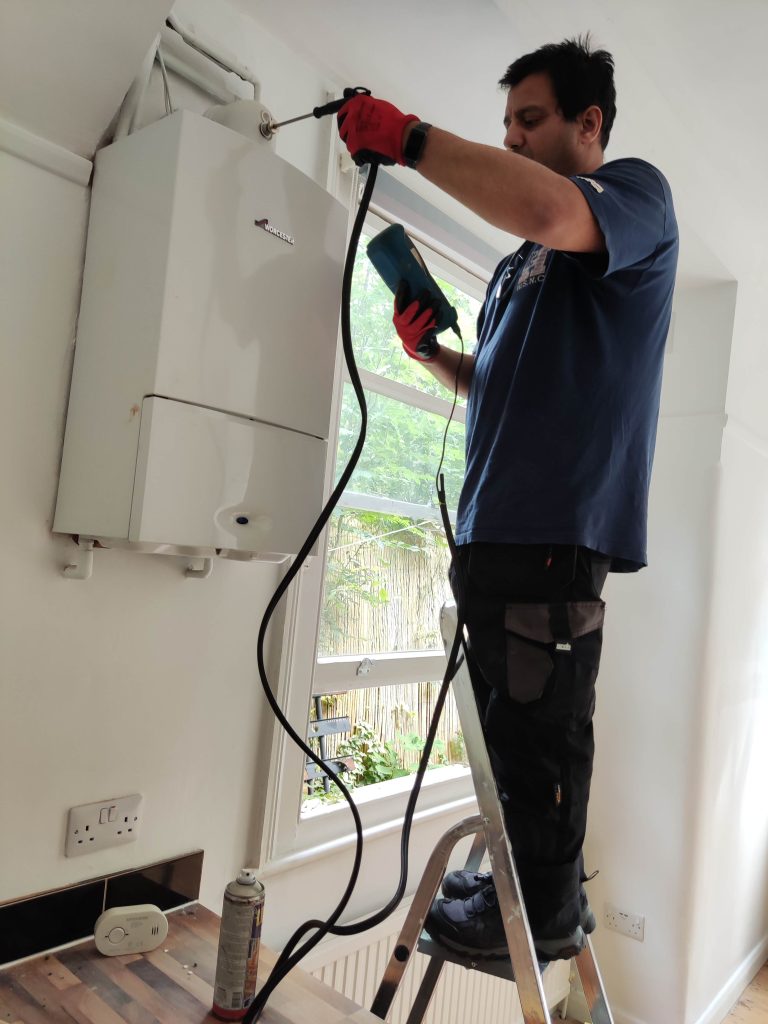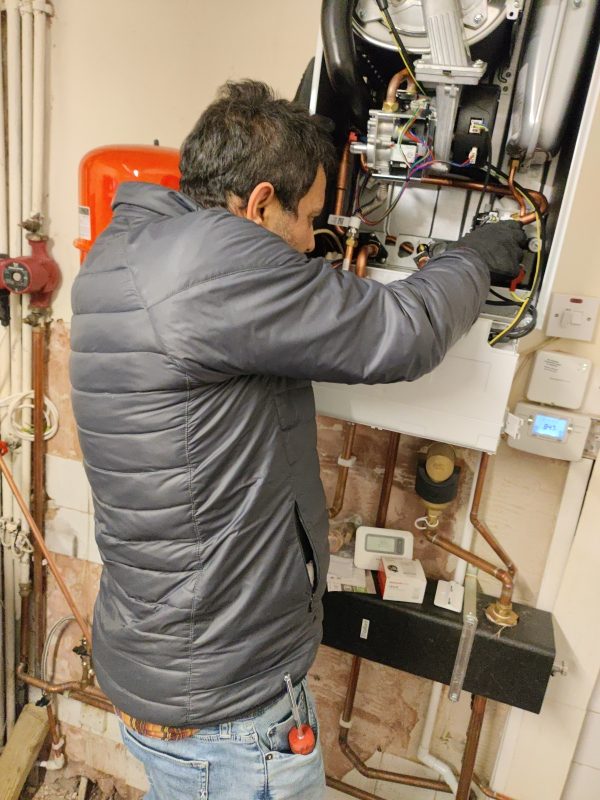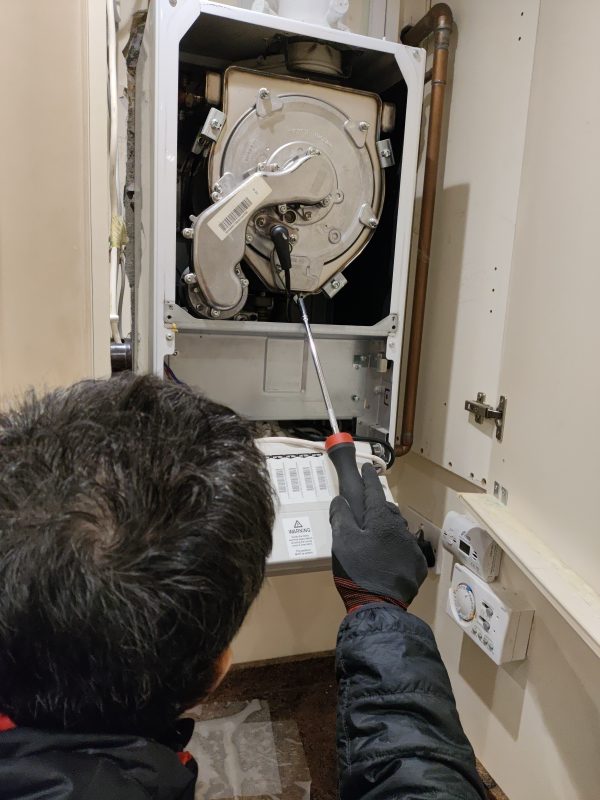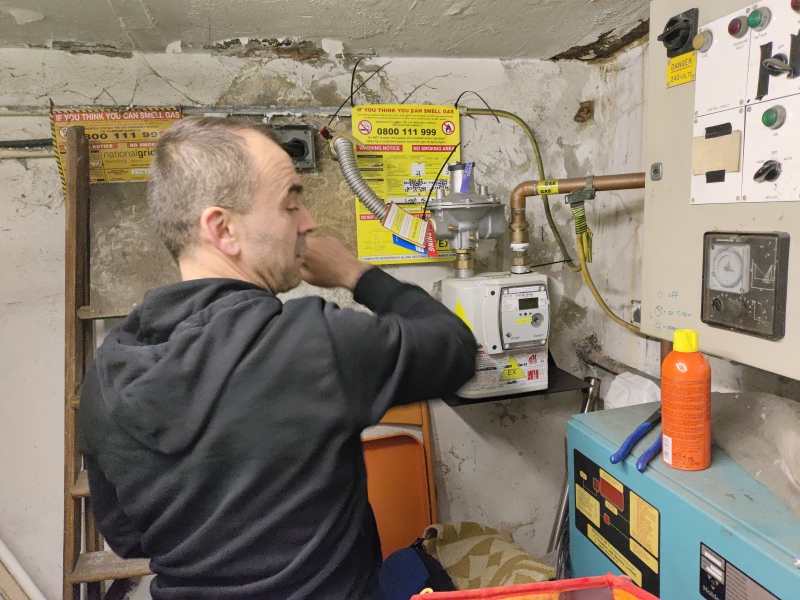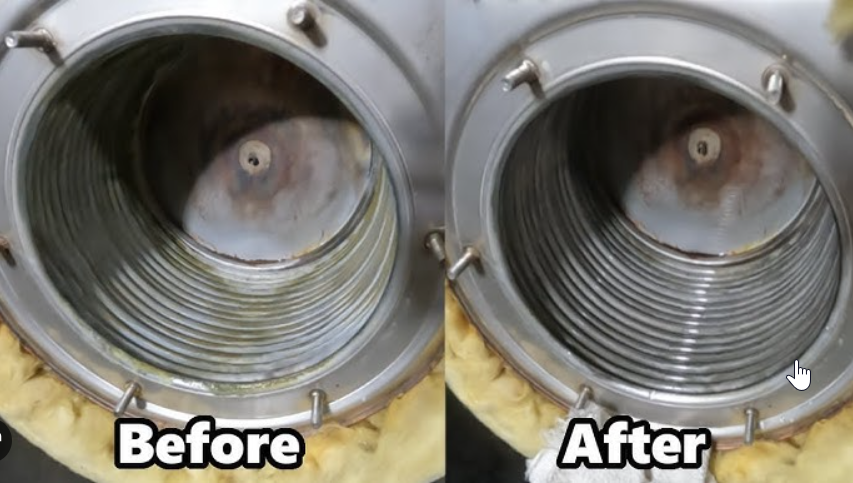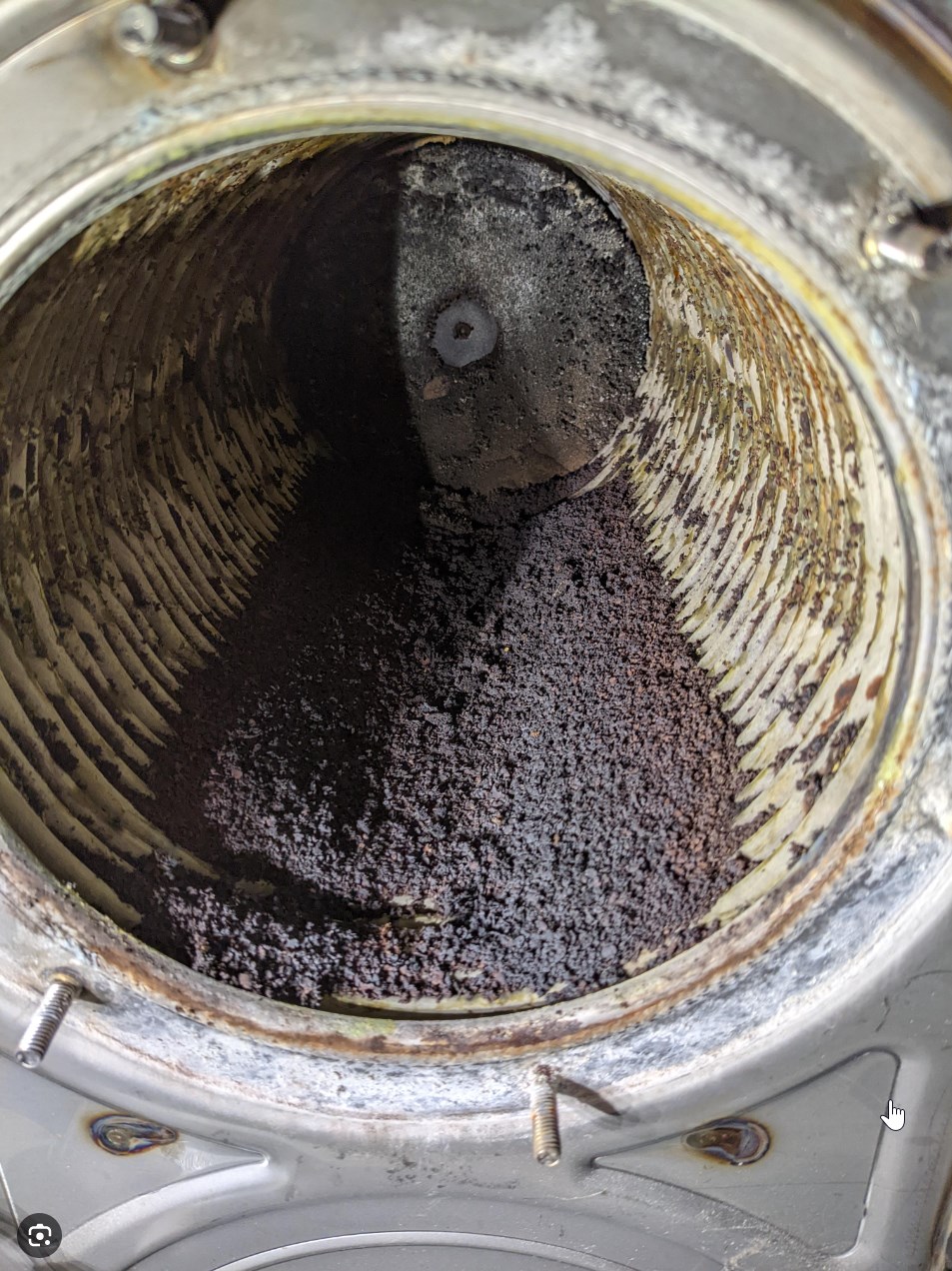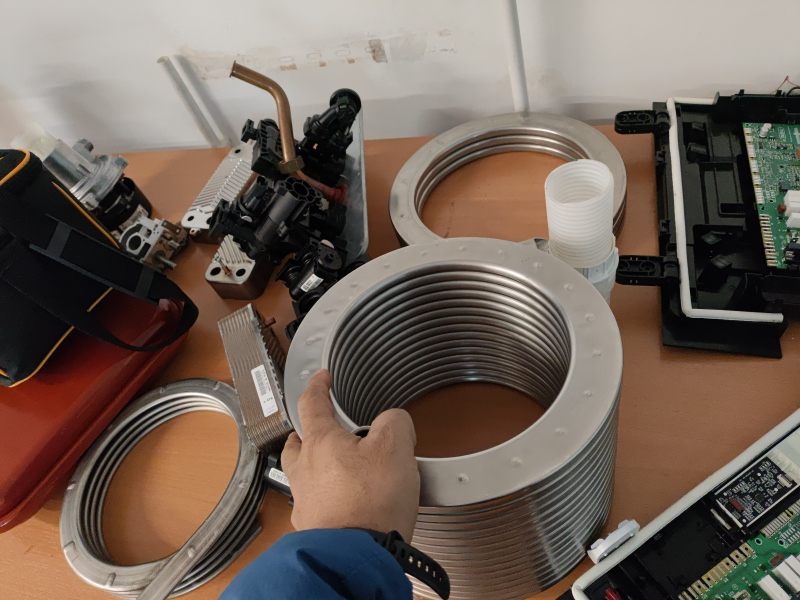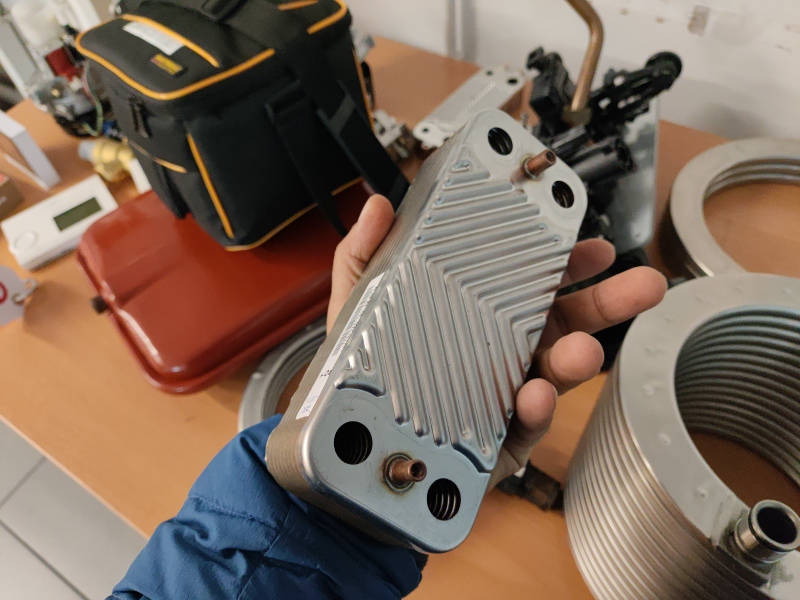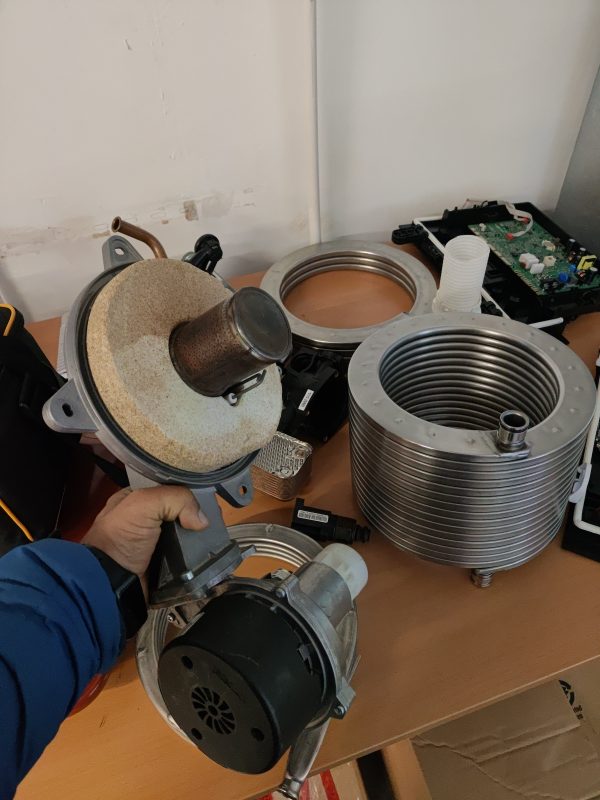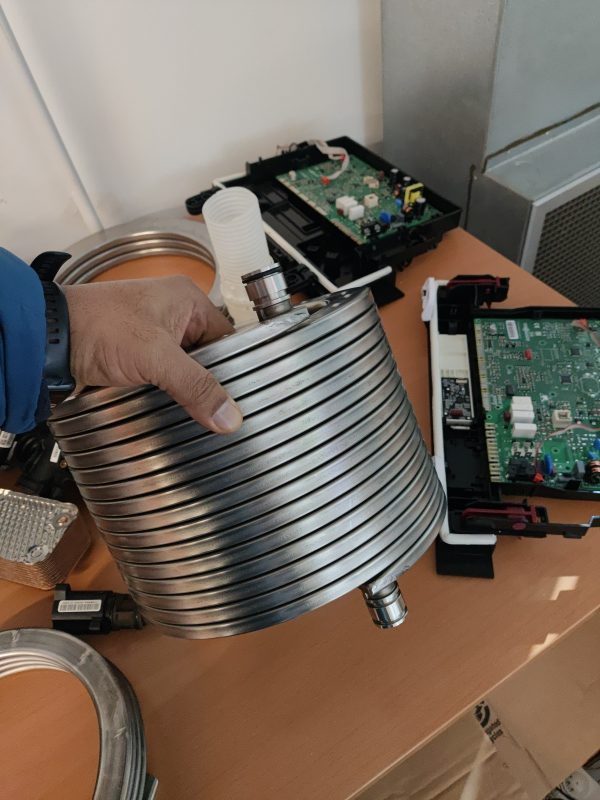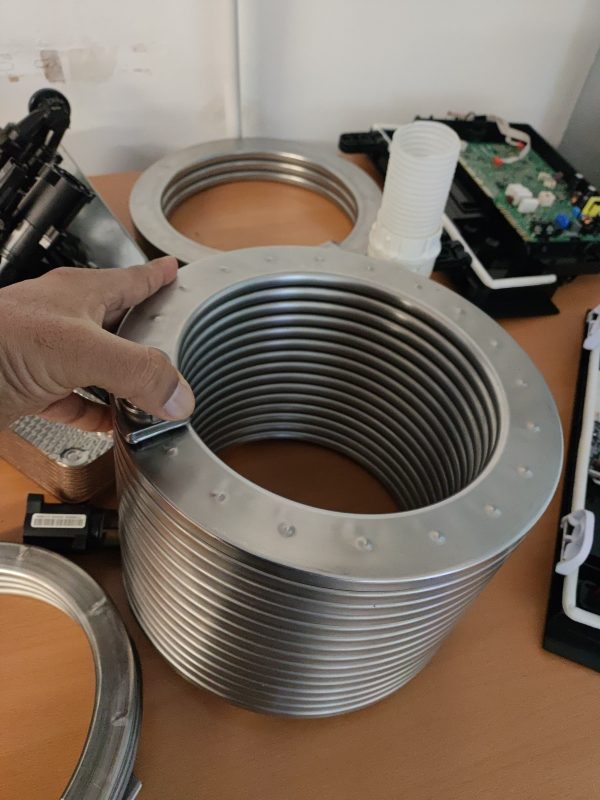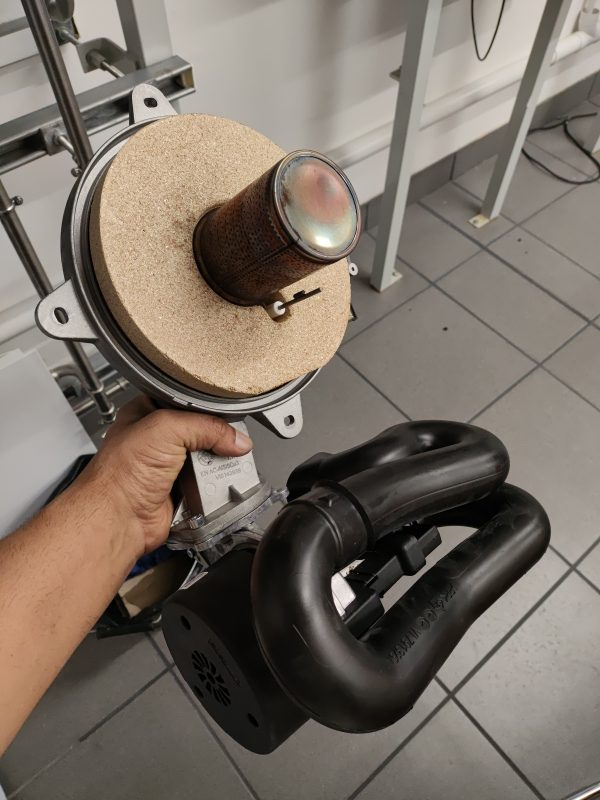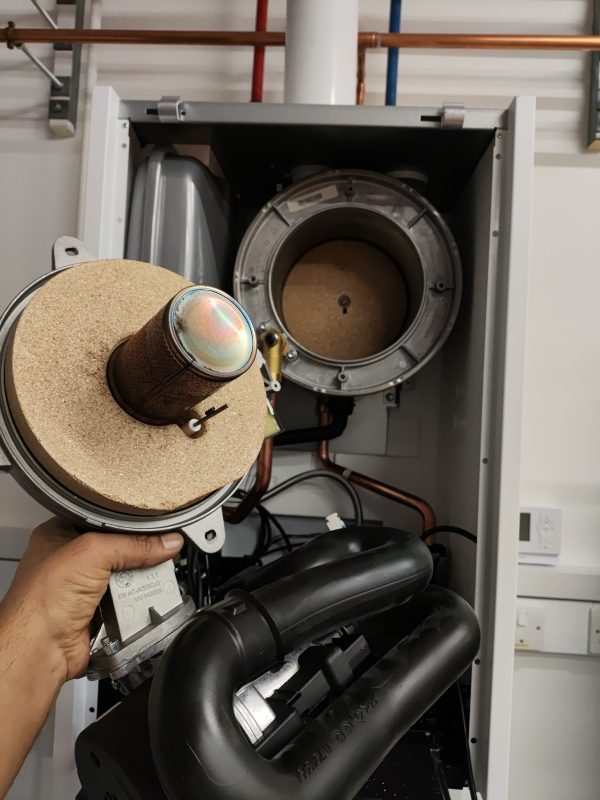Servicing your gas boiler annually is not just recommended, it’s essential for safety, efficiency, and avoiding costly repairs down the line. Whether you have a combi, system, or regular boiler, the principles remain the same: regular servicing ensures your heating system operates efficiently and remains in good condition. In this article, we’ll explain the importance of gas boiler servicing, what to expect during a service, and why neglecting it can void your warranty and lead to expensive issues.
Trust GasElecBag to service your gas boiler! We provide professional, certified Gas Safe engineers who are experts in all types of modern boilers, from Vaillant to Viessmann, ensuring your home stays warm and safe all year round.
Why Is Gas Boiler Servicing Important?
1. Ensures Efficiency
Modern boilers are designed to operate at high efficiency, but over time, components wear out, dirt accumulates, and overall efficiency can decline. A thorough service includes cleaning parts such as the heat exchanger and burner, helping to maintain your boiler’s performance.
- A well-maintained boiler burns fuel efficiently, which helps reduce your energy bills by up to 15% annually.
2. Safety First
The biggest risk of neglecting boiler servicing is carbon monoxide poisoning, a colorless, odorless gas that can be deadly. Regular servicing helps to identify leaks and other issues before they become hazardous. A service will also check safety devices such as the flue system to ensure harmful gases are properly vented.
3. Avoid Breakdowns
A boiler breakdown is not only inconvenient but also expensive. Regular maintenance helps identify potential problems early, preventing breakdowns when you need the boiler most—typically in the cold winter months.
- Most service engineers find that 3 out of 10 boilers that are serviced annually need a repair in the first six years. Without regular servicing, 6 in 10 boilers require costly repairs in the same timeframe.
What Does a Boiler Service Include?
During a gas boiler service, a Gas Safe registered engineer will perform several critical tasks to ensure everything is running smoothly. Here’s a breakdown of what to expect:
-
Visual Inspection: The engineer will check your boiler for any obvious signs of wear or damage, including leaks, corrosion, or improper installation.
-
Casing Removal: Internal components like the burner, heat exchanger, and spark probe are cleaned and inspected to ensure they are in proper working order.
-
Flue Check: The flue system, which expels waste gases, is checked for blockages or leaks. This is critical to ensure harmful gases are not entering your home.
-
Gas Pressure and Flow Check: The engineer will check that your boiler is operating at the correct gas pressure and flow rate.
-
Boiler Fire-Up: Finally, the engineer will fire up the boiler to check all functions and ensure the system is running smoothly.
This process usually takes between 30 minutes and an hour, depending on the type of boiler.
Types of Modern Boilers and Servicing
1. Combi Boilers
The most common type of boiler in the UK, combi boilers provide both heating and hot water directly from the boiler. Regular servicing ensures components like the heat exchanger and burner are working efficiently.
2. System Boilers
A system boiler heats your central heating system and stores hot water in a cylinder. During a service, both the boiler and the external components, such as the hot water tank, will be inspected.
3. Regular Boilers
Also known as conventional or traditional boilers, these systems heat water and store it in a cylinder. These boilers tend to have more external components, meaning the service may take longer than with a combi or system boiler.
Problems That Occur When You Don’t Service Your Boiler
Failing to service your boiler regularly can lead to a number of problems:
-
Warranty Voided: Many manufacturers require annual servicing to keep your boiler warranty valid. If you skip servicing, you could end up paying out-of-pocket for costly repairs that would have been covered.
-
Increased Bills: A poorly maintained boiler has to work harder to heat your home, leading to increased energy consumption and higher utility bills.
-
Carbon Monoxide Risks: A faulty boiler can leak dangerous gases like carbon monoxide, posing a serious risk to your health. Regular servicing ensures your boiler is venting harmful gases correctly.
-
Shorter Boiler Lifespan: Without proper maintenance, your boiler’s lifespan will be reduced, and you’ll be facing an early replacement.
Frequency of Boiler Servicing
Most boilers should be serviced once a year, regardless of age or usage. However, it’s particularly important for boilers that are still under warranty. Many warranties explicitly require annual servicing to remain valid, with some manufacturers even offering extended warranties if servicing is conducted regularly.
For example, major brands like Vaillant and Viessmann require annual servicing as part of their warranty conditions.
What Happens If You Don’t Service Your Boiler?
Neglecting your boiler can lead to expensive problems, including:
-
Void Warranty: If your boiler is under warranty, missing a service can void the guarantee, meaning you’ll have to cover repair or replacement costs yourself.
-
Carbon Monoxide Leaks: A malfunctioning boiler increases the risk of carbon monoxide poisoning, which can be fatal if not detected early.
-
Decreased Efficiency: A poorly maintained boiler loses efficiency over time, leading to higher energy bills.
Cost of Boiler Servicing
The cost of servicing varies depending on the type of boiler and the company you choose. On average, a gas boiler service in the UK costs between £80 and £160, with combi boilers typically on the lower end of the spectrum.
Cleaning the Primary Heat Exchanger: What You Need to Know
Cleaning a boiler primary heat exchanger is essential for maintaining boiler efficiency, reducing the risk of faulty boilers, and avoiding common issues like boiler noise or gas boiler leaking. The heat exchanger is a critical component of your heating system, transferring heat from the burner to the water circulating in your radiators. Over time, dirt, limescale, and debris can build up, reducing efficiency and increasing the risk of system failures.
Here’s what you need to know about cleaning the heat exchanger, why it’s crucial for performance, and how it can prevent costly breakdowns.
How Does the Cleaning Process Work?
-
Opening the Boiler: To access the heat exchanger, the Gas Safe engineer will remove the boiler casing. This is a task that should only be performed by a professional, as it involves dealing with gas components that can be dangerous if mishandled.
-
Inspecting and Replacing Seals: The seals around the heat exchanger are checked for wear and tear. If they’re damaged, they can cause issues like boiler pressure loss or even gas leaks. Replacing these seals ensures the boiler operates safely and efficiently.
-
Proper Cleaning: The engineer will clean the heat exchanger using specialized brushes or chemicals. This removes limescale, soot, and debris that can block the heat exchanger and reduce efficiency. A blocked heat exchanger can cause boiler kettling (a noise similar to a boiling kettle) and decreased performance.
-
Reassembly and Testing: After cleaning, the boiler is reassembled, and the engineer will test the system. This includes checking for boiler efficiency, ensuring there are no leaks, and verifying the boiler’s performance.
Why It’s Vital for Boiler Performance
-
Improved Efficiency: A clean heat exchanger allows your boiler to run more efficiently. Dirt and debris prevent proper heat transfer, meaning your boiler has to work harder to achieve the same level of heating. Regular cleaning can improve the energy efficiency of your boiler and reduce your energy bills by up to 15%.
-
Prevents System Failures: Regular cleaning of the heat exchanger prevents boiler breakdowns. Without proper maintenance, the heat exchanger can become clogged, leading to overheating or a complete system shutdown. In some cases, this can cause damage to other components, resulting in expensive repairs or the need for a new boiler.
-
Extends Boiler Life: Over time, debris can cause corrosion or leaks in the heat exchanger. Cleaning the heat exchanger helps extend the life of your boiler, reducing the need for costly replacements and keeping your heating system running efficiently for longer.
Common Issues Caused by a Dirty Heat Exchanger
-
Boiler Kettling: One of the most common problems caused by a dirty heat exchanger is kettling and boiler noise, often loud squeaking, thuds and groans!!. Limescale buildup inside the heat exchanger can restrict water flow, leading to overheating. This can cause your boiler to make a high-pitched, whistling noise (like a boiling kettle) and reduce its efficiency.
-
Leaking Boiler: A blocked or corroded heat exchanger can also lead to gas boiler leaking. This not only reduces the efficiency of your heating system but can also cause serious safety issues, including water damage and increased repair costs.
-
Dirty Radiator Water: When you bleed your radiators, the water should be clear. If the water is black or murky, it could be a sign that the heat exchanger and other components of your heating system need cleaning. Of course dirty radiator water is more likely caused by sludge and rust, it can be a sign of other problems in the entire system including the boiler itself.
How Often Should the Heat Exchanger Be Cleaned?
For many boilers, the heat exchanger should be cleaned every two years. However, this can vary depending on the hardness of your water, age of your system, the boiler manufacturer and model. If you live in an area with hard water, limescale can build up more quickly, requiring more frequent cleaning.
An annual boiler service will help identify when your heat exchanger needs attention, preventing breakdowns and maintaining performance.
Why You Shouldn’t Ignore Heat Exchanger Maintenance
Neglecting to clean your heat exchanger can lead to a range of issues, from decreased efficiency to a complete boiler breakdown. Over time, dirt and debris can cause irreversible damage to the heat exchanger, requiring a costly replacement. In some cases, it may be more cost-effective to replace the entire boiler than to repair the heat exchanger, especially if your boiler is over 10 years old.
Summary of Benefits
- Energy Savings: A regularly serviced boiler operates efficiently, saving up to 15% on your energy bills.
- Increased Lifespan: Regular servicing can extend your boiler’s life by several years.
- Safety: Regular checks minimize the risk of dangerous carbon monoxide leaks.
- Peace of Mind: Knowing your boiler is in good working condition provides comfort, especially during the winter months.
For more details or to book your boiler servicing, contact us at GasElecBag today!
We provide professional, certified Gas Safe engineers who are experts in all types of modern boilers, from Vaillant to Viessmann, ensuring your home stays warm and safe all year round.
References
- Vaillant UK: Boiler Servicing
- Viessmann UK: Boiler Servicing
- MoneySuperMarket: Boiler Service Guide
- MoneySavingExpert: Discussions
- Glow Worm
- Reddit: Boiler Servicing
These links should provide you with up-to-date and relevant information about boiler servicing, covering aspects like costs, why servicing is important, and what to expect during a service.
